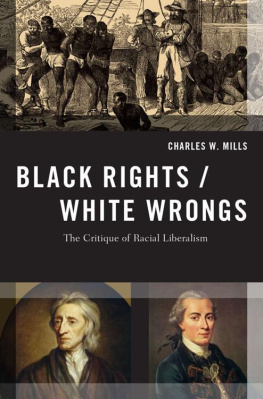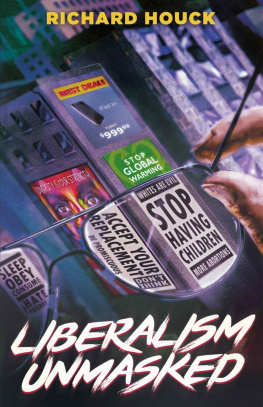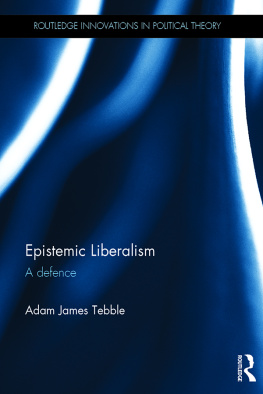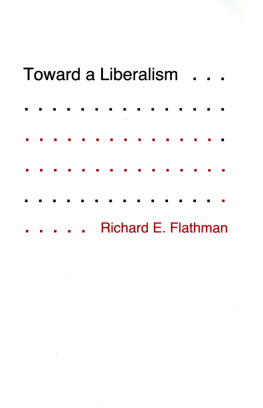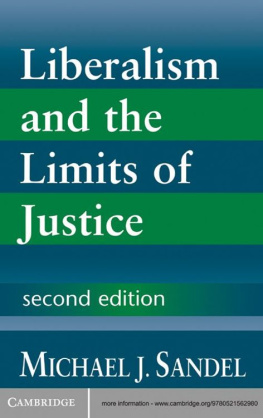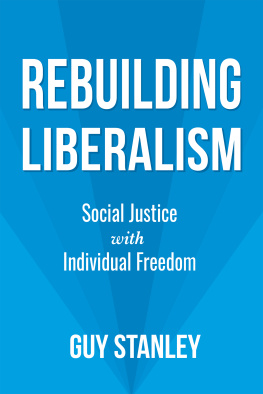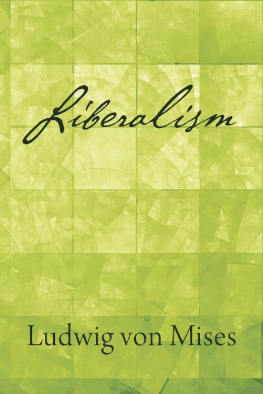Black Rights/White Wrongs

The Politics of Public Housing: Black Womens Struggles against Urban Inequality
Rhonda Y. Williams
Keepin It Real: School Success beyond Black and White
Prudence L. Carter
Double Trouble: Black Mayors, Black Communities, and the Call for a Deep Democracy
J. Phillip Thompson, III
Party/Politics: Horizons in Black Political Thought
Michael Hanchard
In Search of the Black Fantastic: Politics and Popular Culture in the PostCivil Rights Era
Richard Iton
Race and the Politics of Solidarity
Juliet Hooker
I Am Your Sister: Collected and Unpublished Writings of Audre Lorde
Rudolph P. Byrd, Johnnetta Betsch Cole, and Beverly Guy-Sheftall, Editors
Democracy Remixed: Black Youth and the Future of American Politics
Cathy J. Cohen
Democracys Reconstruction: Thinking Politically with W.E.B. DuBois
Lawrie Balfour
The Price of the Ticket: Barack Obama and the Rise and Decline of Black Politics
Fredrick Harris
Malcolm X at Oxford Union: Racial Politics in a Global Era
Saladin Ambar
Race and Real Estate
Edited by Adrienne Brown and Valerie Smith
Despite the Best Intentions: How Racial Inequality Thrives in Good Schools
Amanda Lewis and John Diamond
London Is the Place for Me: Black Britons, Citizenship, and the Politics of Race Kennetta Hammond Perry
Black Rights/White Wrongs: The Critique of Racial Liberalism
Charles W. Mills
Black Rights/White Wrongs
The Critique of Racial Liberalism
Charles W. Mills


Oxford University Press is a department of the University of Oxford. It furthers the Universitys objective of excellence in research, scholarship, and education by publishing worldwide. Oxford is a registered trade mark of Oxford University Press in the UK and certain other countries.
Published in the United States of America by Oxford University Press
198 Madison Avenue, New York, NY 10016, United States of America.
Oxford University Press 2017
All rights reserved. No part of this publication may be reproduced, stored in a retrieval system, or transmitted, in any form or by any means, without the prior permission in writing of Oxford University Press, or as expressly permitted by law, by license, or under terms agreed with the appropriate reproduction rights organization. Inquiries concerning reproduction outside the scope of the above should be sent to the Rights Department, Oxford University Press, at the address above.
You must not circulate this work in any other form and you must impose this same condition on any acquirer.
CIP data is on file at the Library of Congress
ISBN 978-0-19-024542-9 (Pbk); ISBN 978-0-19-024541-2 (Hbk); eISBN 978-0-19-024544-3
Toward a deracialized liberalism
I have almost reached the regrettable conclusion that the Negros great stumbling block in the stride toward freedom is not the White Citizens Counciler or the Ku Klux Klanner, but the white moderate who is more devoted to order than to justice.
Martin Luther King Jr., Letter from a Birmingham City Jail
A white moderate is a cat who wants to lynch you from a low tree.
Dick Gregory
CONTENTS
Many of the chapters in this book have benefited from being presented in earlier incarnations as papers at campus colloquia and at conferences over the period 200215. The chronological order of these presentations is as follows: at The Moral Legacy of Slavery: Repairing Injustice conference, Bowling Green State University (2002); at the annual Chapel Hill Colloquium in Philosophy (2002); at a conference organized by the Chicago Political Theory Group (2002); on an American Philosophical Association (APA) Central Division annual meeting symposium panel, Race, Gender, and Public Life (2003); at the Race and Politics Workshop, UCLA Department of Political Science (2003); at the annual meeting of the Society for Phenomenology and Existential Philosophy (SPEP) (2003); in the Just Globalization lecture series, Lehigh University (2003); as a lecture at Colby College (2003); at the Women Philosophers, Sidelined Challenges, and Professional Philosophy special session, APA Eastern Division annual meeting (2003); as a lecture as Visiting Eminent Scholar, University of Alabama at Huntsville (2004); as an opening keynote address at the Ethics and Epistemologies of Ignorance conference, Pennsylvania State University (2004); at the American Political Science Association annual meeting (2007); at The Social Contract Revisited: The Modern Welfare State workshop, Oxford University (2007); at the annual meeting of SPEP (2007); at the APA Eastern Division annual meeting (2007); as the opening keynote address at the annual Philosophy of Social Science Roundtable (2008); as one of the keynote addresses at the Examining Whiteness: White Privilege and Racism in America conference, Allegheny College (2008); in the Diaspora Talk Series: Theory, Politics, and History, University of Texas at Austin (2008); at the Spindel Conference, Race, Racism, and Liberalism in the 21st Century, University of Memphis (2008); at the Graduate School of Education, University of California Berkeley (2008); as the opening plenary address at the annual conference of the British Political Studies Association (2009); in the Justice series, University of Mary Washington (2009); at Critical Refusals: The Fourth Biennial Conference of the International Herbert Marcuse Society, University of Pennsylvania (2011); on an APA Eastern Division annual meeting panel, Philosophers Respond to Occupy Wall Street (2011); at the annual meeting of the Western Political Science Association (2012); on an APA Eastern Division annual meeting panel, African-American Political Theory (2014); as the Kneller Lecture at the annual meeting of the Philosophy of Education Society (2015); at the conference Race in 21st Century America: Race and Democracy, James Madison College, Michigan State University (2015); and as the Centre for Ethnicity and Racism Studies public lecture in celebration of the United Nations International Decade for People of African Descent, Leeds University (2015).
I have greatly benefited from the feedback, encouragement, and criticisms I received over this time from various people, whether as organizers of the campus colloquia and conferences to which I was invited to give presentations, or as critics, commentators, and editors. I would like to mention in particular Linda Martn Alcoff, Kal Alston, Elizabeth Anderson, Marcus Arvan, Alison Bailey, Lawrie Balfour, Bruce Baum, Robert Bernasconi, Eduardo Bonilla-Silva, Bernard Boxill, Harry Brighouse, Bill Bywater, Cheshire Calhoun, Brad Cokelet, David Copp, Harvey Cormier, Derrick Darby, Peggy DesAutels, Eduardo M. Duarte, Samuel Fleischacker, Tyrone Forman, Paul Gomberg, Robert Gooding-Williams, Barnor Hesse, Thomas Hill, Nancy Holmstrom, Juliet Hooker, the late Richard Iton, Chike Jeffers, Desmond King, Ruth Kinna, Pauline Kleingeld, Janet Kourany, Anthony Laden, Andy Lamas, Bill Lawson, Zeus Leonardo, Amanda Lewis, Moya Lloyd, Robert Louden, David Lyons, Michael T. Martin, Diana Meyers, Tom Mills, Carole Pateman, John Pittman, Raymond Rocco, Salman Sayyid, Richard Schmitt, Tommie Shelby, Falguni Sheth, Shu-mei Shih, Anna Marie Smith, Stephen Steinberg, Curtis Stokes, Shannon Sullivan, Shirley Tate, Winston C. Thompson, Lynda Tredway, Nancy Tuana, Jack Chip Turner, Jennifer Uleman, Andrew Valls, Harry van der Linden, Craig Vasey, Timothy Waligrow, Margaret Urban Walker, Kristin Waters, Bill Wilkerson, Yolonda Wilson, Alison Wylie, George Yancy, Marilyn Yaquinto, and Naomi Zack. Special thanks to Tyler Zimmer for the impressive computer graphics he did for the epilogue, Toward a Black Radical Liberalism.

